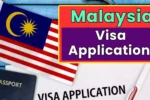The United States offers a broad spectrum of work visas to global job seekers of diverse professions and skill levels. Until January 2025, many types of visas can be applied for-traditional visas, validating their eligibility requirements, and processes they take.
H-1B Visa: For Skilled Workers
The H-1B visa is one of the most sought-after visas for people searching for work because it is for the highly skilled. This particularly concerns occupations such as technology, engineering, and healthcare. Employers will then be allowed to sponsor foreign workers for positions where an education at the certification level or higher is required. A lottery is usually carried out as the first step of the application process, and successful applicants permitted to apply.
L-1 Visa: For Intra-Company Transfers
The L-1 visa, designed for workers to relocate to an office in the U.S., is directed at employees within multinational businesses. This group would include executives, specialists, and administrators. The L-1A is for managers, and the L-1B is for people with special knowledge. This type of visa streamlines the transfer of international talent throughout organizations.
O-1 Visa: For Individuals with Extraordinary Ability
This visa applies to individuals with extraordinary ability in sciences, arts, learning, business, or athletics to have unique abilities. Applicants have to be known with extensive achievements and be very successful in the field they work. The choice visa for seasoned professionals and artists looking for opportunity in the U.S.
H-2B Visa: For Non-Immigrant Seasonal Workers
The H-2B visa allows foreign nationals to work in non-agricultural seasonal or temporary roles, such as in hospitality, construction, or landscaping. US workers must be proven to be unavailable for these jobs. This visa solves labor shortages in fluctuant industries.
H-2B Visa: For Non-Agricultural Seasonal Workers
The H-2B visa allows foreign nationals to work in non-agricultural seasonal or temporary roles, such as in hospitality, construction, or landscaping. Employers must demonstrate that U.S. workers are unavailable for these roles. This visa helps address labor shortages in industries with fluctuating seasonal demands.
H-2A Visa: For Agricultural Workers
The H-2A visa is for foreign nationals seeking temporary or seasonal agricultural jobs in the U.S. Employers must meet specific criteria to qualify, including proving the need for foreign labor and ensuring fair wages and working conditions.
E-2 Visa: For Investors and Entrepreneurs
The E-2 visa is for individuals from treaty countries who invest a substantial amount in a U.S. business. This visa provides opportunities for entrepreneurs to establish and manage their businesses while residing in the U.S.
Conclusion
In January 2025, the United States offers various work visa options for international job seekers, ranging from skilled professionals and executives to seasonal workers and entrepreneurs. Understanding the requirements and application procedures for each visa is essential for securing an opportunity in the U.S. labor market.



